Fine Young Cannibals – Fine Young Cannibals
I’ve talked with some of my music-minded friends about what a gap there can be between my perception of how popular a song was, based on its video presence back in the days when MTV and the other music television channels heavily featured music, and what it actually did on the official record charts. There were a number of songs that were in constant rotation on MTV, and hugely popular among my college-age peers, that apparently barely made a mark on the official Billboard charts, and it’s pretty clear that in the early to mid 1980s, I was much more attuned to what was playing on the video channels than on radio.
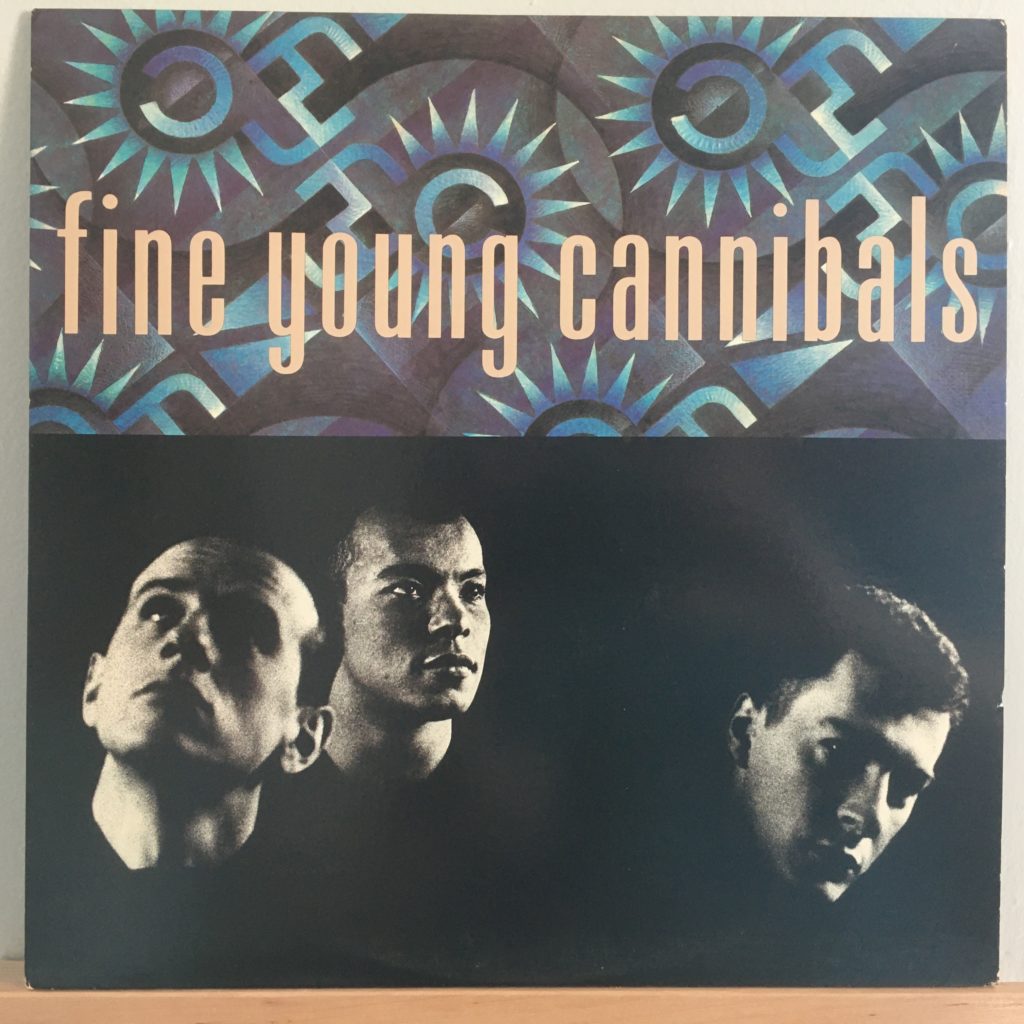
Fine Young Cannibals are a prime example. Their debut single, “Johnny Come Home,” was released at the end of May 1985. I must have picked up on it from video airings, and immediately became enamored of the song and the band and the singer and the sound and everything. I thought Fine Young Cannibals were amazing, a sound for a new era as far as I was concerned. I didn’t really know that Andy Cox and David Steele came from The English Beat, a band I knew existed but had no experience with. I couldn’t have really said that it was the ska influence that made these songs sound like nothing else I was familiar with. I just knew there was something in Roland Gift’s clear, plaintive voice — and those lyrics really hit home. Being just a little over a year sober, the lines “What is wrong in my life / That I must get drunk every night” hit me right between the eyes. (The answer, by the way, is that I am an alcoholic.) A striking song and a video that saw a lot of play — yet on the US Billboard charts, the song only reached 76 (9 on the dance charts though). I would have thought this a top 20 hit at least. Their cover of “Suspicious Minds,” the only version of that song I care to hear,” only made the dance charts. Two other songs off this great album also failed to chart. What the hell, America? This despite what I felt was a huge amount of coverage in the media, particularly focused on the good looks and great pipes of Roland Gift, who seemed like he was going to be the next big thing. They injected a retro groove into what was then a synthpop universe, and it was a nice refreshing slap in the face.
That first song actually came out months ahead of the album, which wasn’t released until December 1985. I remember buying this album on a visit to New York City in February, 1986. Records weren’t the most convenient thing to buy down there, in terms of carrying them around and getting them back, but we had driven down and were staying for several days with sister-in-law in Brooklyn, so getting a few records home must not have seemed a problem. Why do I particularly remember picking up this album on that trip? (I think I may even have played it while we were down there.) This came at a very interesting, difficult, adventurous time of life. My father had died just a few months before, and I was deep in a very odd, difficult grief, not knowing quite how to feel about it (and am still working that out just 35 years later). Still pretty much newlyweds at a bit more than two years, I had nearly two years of sobriety as well, trying to figure out how to fill the time that used to be spent drinking. Musically, I had started to venture toward more classical music and was enormously enamored of Kurt Weill.
So enamored, in fact, that we ended up staying down in New York City a couple more days than we had intended, because we found out that the Center for Contemporary Opera was putting on a little double-bill of Weill works, “Der Jasager,” a kinda preachy little piece of Brecht/Weill, and “Mahagonny Songspiel,” a much more satisfying work about a group of adventurers seeking out a paradisaical city, only to find that it is anything but. You may not know it, but you actually do know one of the songs from it: “Alabama Song,” to my way of thinking ruined by The Doors, came from “Mahagonny.” So we stayed an extra day so we could go into the city and attend this production in a Universalist church at 76th and Central Park West.
Well, it was marvelous. We were very used to being by far the youngest couple in any classical audience, but I recall that in NYC we weren’t the only younger couple. The production was simple but fantastic, and while I’ve never warmed to “Der Jasager,” the production of “Mahagonny Songspiel” was just a Weimarian delight. The performance was followed by a question and answer session, and some rows behind us a member of the audience stood to ask his question . . . and that voice was unmistakable. An absolute hush fell over the crowd. If you were a Weill fan, as many in the audience were, you were stunned to be in the presence of the legendary actor who had famously played the title role in the 1956 recording of Weill’s “Johnny Johnson.” If you were my age, you were stunned to be in the presence of The Penguin. (If you’re from Philly, yes, he was in “Rocky.”) There stood Burgess Meredith, asking questions of the production but also holding court in a way. It was amazing, and we thought: this is the kinda thing that happens in New York all the time.
Maybe it does. But we went home, and bought a box set of the full “Rise and Fall of the City of Mahagonny” (the Songspiel is an abbreviated version), and played it a lot in the next few years. So, oddly, we took away two completely different musical experiences from that trip.
Listening to this album with clean ears, after years of mostly just remembering what it sounds like: much of it still seems fresh. Gift’s vocals are still striking, the instruments great, understated. There’s some sweet horn work. The production, while not the most ‘80s thing I’ve ever heard, is a little thin, and in places a lot thin. There’s a whole bottom end missing from a lot of this that maybe didn’t matter so much when I was listening to this on cassettes played over an FM link to my car stereo, or when I had to listen kinda quietly to keep our neighbor downstairs from (justifiably) thumping his ceiling with a broomstick. There are also a couple of clunkers, to be sure. But I still like this quite a bit.
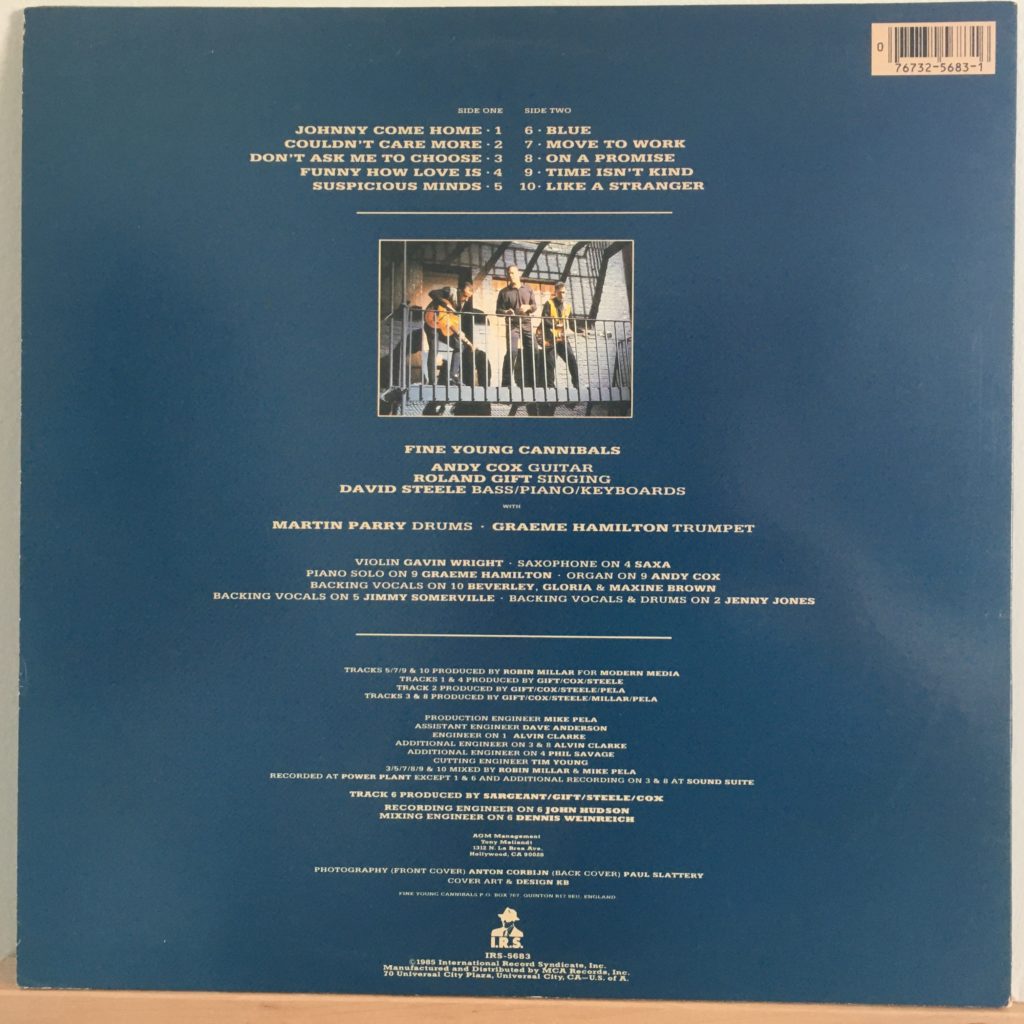
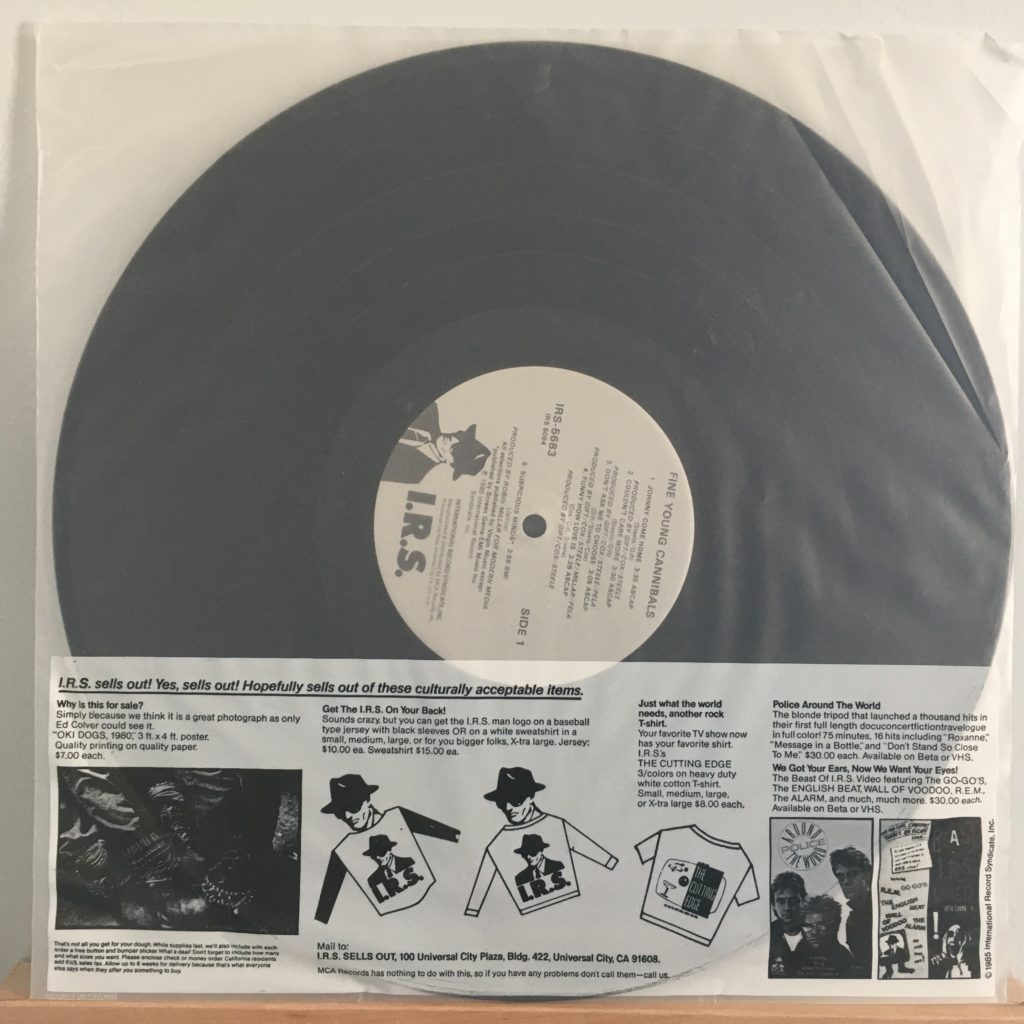
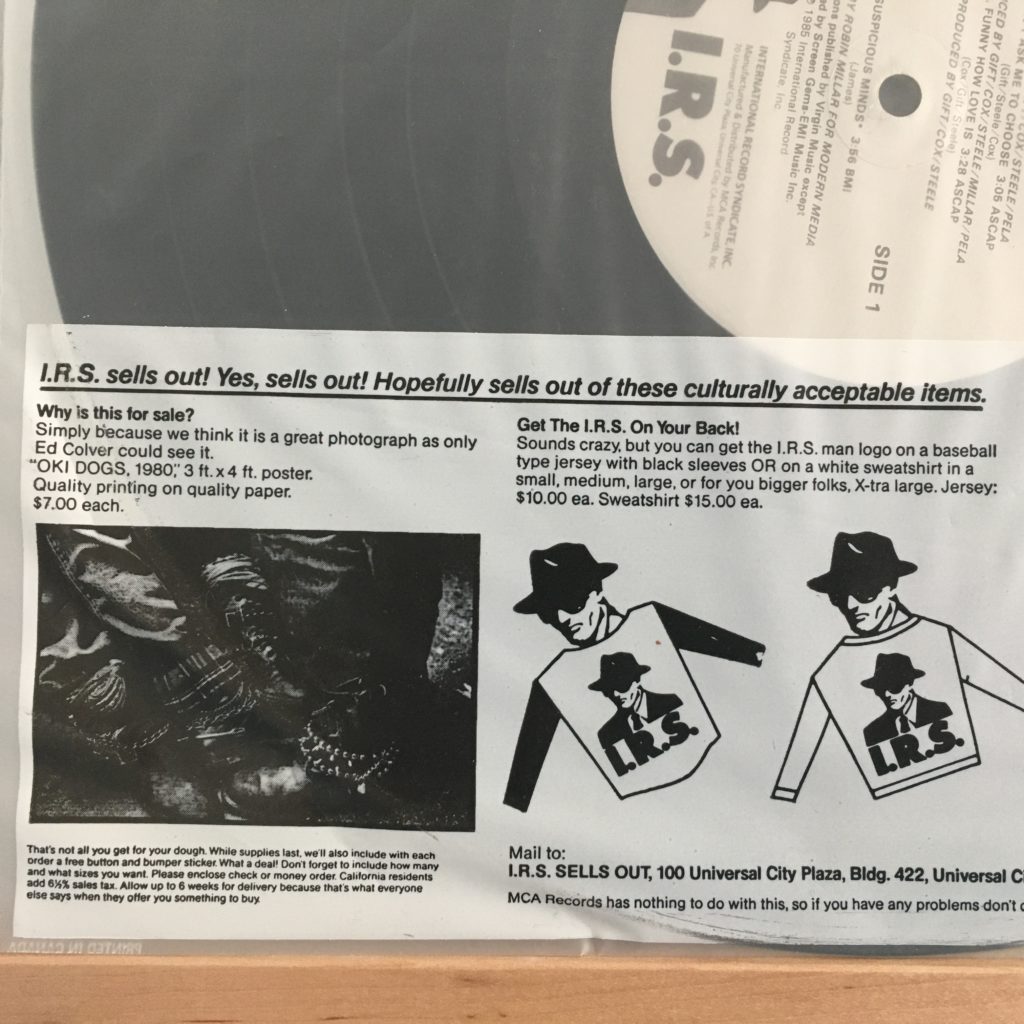
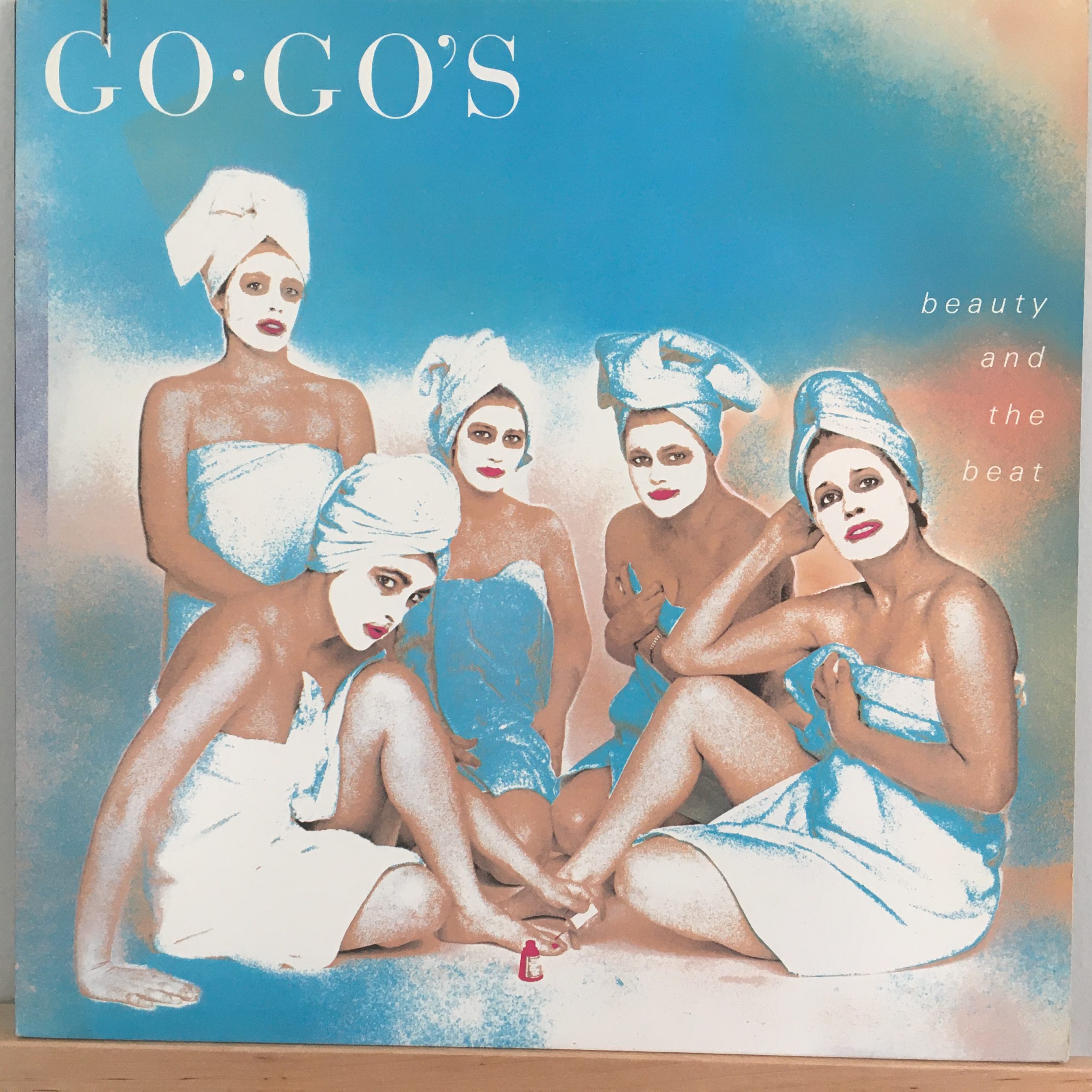


Things We Said Today